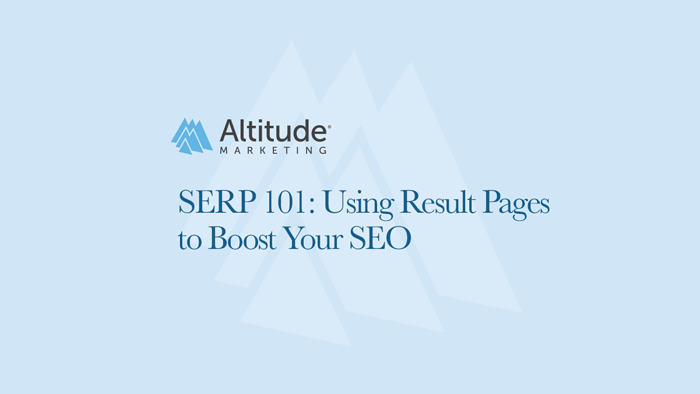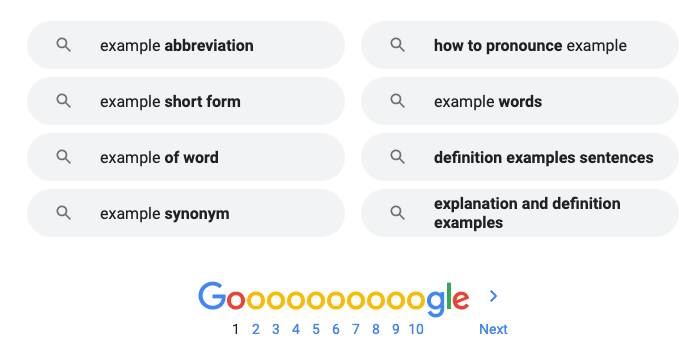SEO is an essential tool for B2B marketing in 2021 and beyond. But before you start optimizin’, you need to understand one core building block: the SERP.
Another acronym? We know. But stick with us.
Basically, the SERP – we’ll get to a definition in a second – is an easy-to-use, free tool to improve your SEO.
Another marketing tool? We know. But stick with us.
Fact is, you’ve been using this one for years.

What is a SERP?
A “SERP” is a search engine results page. It’s what appears when you look something up on search engines like Google, Yahoo, or Bing.
(LOL, Bing. “Let me Bing that.” Suuuuure.)
There are a lot of elements on a SERP. These include paid ads, definitions, directions, company profiles and more. But what we’re going to focus on here today are organic results.
These are anything on the SERP that isn’t marked with “Ad.” They’re widely considered the most credible parts of the page for B2B marketing. Put simply, if you own the top organic position for a search term, you’re going to generate a lot of traffic.
How do you get there? SEO. And what’s a tool you can use to improve your SEO? The SERP itself.
How SERPs Help with SEO
The search engine results page itself is probably your most valuable SEO tool.
Why?
Because it gives you two key pieces of information you can use to hone your content. And all it takes is a quick Google search!
(Yes, we’re using “Google” as the verb. Sorry, Bing. Also the dearly departed Ask Jeeves, which objectively ruled.)
Here’s how.
Step 1: Google Your Keywords
This is the single most important part of SEO.
Seriously.
Think about what you’re trying to rank a post or page for, then Google it.
That’s it.
What you do with the information you find on the SERP will help shape your content on a fundamental level.
Why It Works
Google wants to give its users the best experience possible. That means they use their own algorithms to determine the optimal results for a given search.
Sometimes its results will align with your keywords. Sometimes it won’t.
Why? Because Google doesn’t rank content based on how well it’s “SEOed.” It ranks based on what it thinks users want.
Now, Google can have a hard time understanding the nuances of B2B SEO. That’s why you have to Google your focus keyword to understand what Google is thinking. Only then can you have that coveted Page 1 spot.
Don’t fight Google. Work with it. Learn from it.
Here’s a real world example.
One of our clients needed to rank for a specific term. Problem is, it had multiple meanings.
Googling the plural version of the term showed them on Page 1.
Nice!
But …
Googling the singular version of the term showed content about … a version of glaucoma.
Nothing to do with their company or industry. At all.
Bummer, right? But we learned something!
These are context clues that Google didn’t think our client’s content belonged on Page 1 for the singular version of the term. Fighting the battle would have been pointless. Instead, shoring up the plural version became a key part of the content strategy.
Step 2: Look At Related Searches
Don’t click off that SERP just yet!
Scroll down to those “searches related to …”:

These search suggestions are organic, common user queries Google sees as related to your keywords.
Now, for free, you’ve got a new list of content areas that your prospects are probably looking up and want to know about. Write on them, answer questions, and adopt those new keywords and terms!
Rinse and repeat for all keywords, and you’re on track for some major SEO discoveries.
Doing these simple steps before exploring new and expensive SEO services could save you, and your company, many headaches (and probably a lot of money).
Thanks, Google!
tl;dr: SERP 101
Properly navigating SERPs can help you better understand where you need to begin with your SEO journey. Google search results and related suggested searches based on your important keywords are your friends in determining terms and content to focus on.



